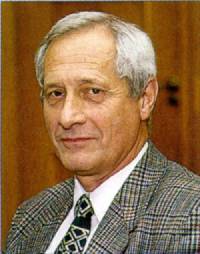 |
|
V.I. Vernadsky Institute of Geochemistry and Analytical Chemistry is one of the major Institutes of the Russian Academy of Sciences. The Institute has been organized in March 1947 by the Presidium of the Academy of Sciences of the USSR on the basis of the V.I.Vernadsky laboratory for Geochemical Problems and has started its activity in this status since April 3, 1947 on the order of its first director academician A.P. Vinogradov. |
First years after World War the 2nd the Institute was involved in the problems of atomic power production. Its staff participated in analytical support of the technological processes at the radiochemical enterprises for plutonium production. Fundamental problems of radiochemistry, separation of transuranium elements, prospecting for raw material have been under study. The institute actively worked on the problems of super-pure substances’ production, analytical methodology and technique, prospecting for rare elements and their extraction.
With a new space era the Institute has become the one of leader in the field of the Moon and planets research. The Institute developed scientific devices, which were installed on space vehicles directed to the Moon and Venus. They brought the first information on the material composition of these planets. The Moon samples delivered by the soviet automatic stations "Luna-16", "Luna-20" and "Luna-24" have been analyzed and are stored so far in a special laboratory of the Institute. The Institute has a unique collection of meteorites.
In the Institute effective methods of concentration, extraction and sorption were developed, and new reagents discovered, which allowed to improve selectivity, sensitivity and accuracy of analysis. This made a significant contribution to the progress of the national analytical chemistry. The Institute has a powerful analytical basis.
The Institute has a profound experience in radio-geochemical research since its early works on the global radionuclide fallout after the nuclear weapon tests and up to the later studies on consequences of the Chernobyl accident and radio-ecology of the Southern Urals.
Geochemistry of the Earth’s crust and mantle, behavior of the matter at high pressure and temperature, the nature and peculiarities of the different magmatic phenomena, ore formation took a central place in the work of the Institute during all its history.
A significant place in its work belongs to the research on geochemistry of the ocean. The Institute owns a specialized oceanographic vessel "Akademik Boris Petrov". During numerous expeditions the scientists of the institute obtained important data on the structure of the sea bottom and the processes occurring in marine sediments.
The Institute is the leader in the area of the geochemistry of carbon - the element whose behavior is the deepest reflector of the interaction between the living and inert matter, including oil and gas-forming, synthesis of diamonds, evolution of biosphere and other processes. The Institute gave birth to the national school of isotopic geochemistry. The works performed in the field of geochemistry of isotopes of carbon, oxygen, lead and noble gases are a valuable contribution to the world science. New methods and devices for the environmental monitoring are created in the Institute.
Last years were critical for the development of our society. The general difficulties were reflected in the state of scientific research. Nevertheless, our Institute remains to be a powerful scientific organization with a high technical and intellectual potential.
Academician E. Galimov, Director

